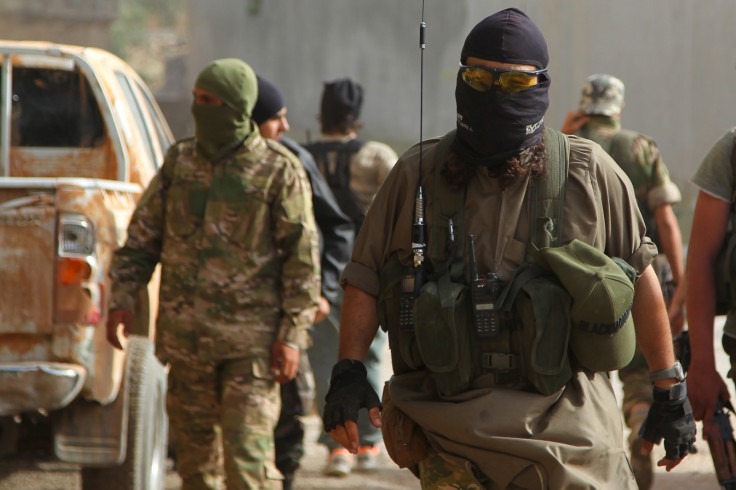Isis: Military expert questions story about SAS sniper who saved man and child from death squad

A story about a "hero" SAS sniper who reportedly killed a member of an Islamic State (Isis) death squad as he moved to behead Syrian villagers is an "easy sell" to the British public, according to a military expert.
"Such stories don't require corroboration to have their desired effect on the readership of such publications," a spokesman for a UK military think tank told IBTimes UK on the condition of anonymity.
The spokesman made the comments anonymously because he was not in a position to discuss the UK's operations in Syria.
While he was not in a position to ascertain the accuracy of the report, which appeared in The Daily Star and Express attributed to an anonymous SAS source, the expert suggested its authenticity is almost irrelevant. After speaking with the source, identified as a member of Britain's Special Forces, The Daily Star originally reported on Monday 10 August that the SAS sniper shot dead IS executioners in something akin to a scene from an action film.
"It is quite an easy sell," he added, "this notion that elite snipers are taking action on the ground against the worst of the worst, when the UK's response feels otherwise fairly impotent to many people, confined to limited air strikes while such Daesh barbarity goes unchecked".
'Knife-wielding jihadi' killed?
The British sniper reportedly killed a knife-wielding jihadi with a single head shot from 1,000m as he was poised to behead a man and young boy in a northern Syrian village near the border with Turkey. The sniper then killed three other IS death squad executioners. The events reportedly took place in July within the borders of Syria.
It would play well to a UK audience. It's a fairly easy sell. Snipers taking out guys we know are the worst of the worst. I don't think there's an awful lot behind it
"It's the classic SAS hubbub. Deniability works both ways and just fuels the appetite for such stories," the military think tank spokesman said of the story's leaking to the press. The release of such unverifiable stories could be laying the ground ahead of political moves to increase the UK's military roll fighting Isis in Syria.
"However speculative they may be they will always gain prominent press coverage, offering the sense that somewhere, somehow British forces are acting in defence of innocent victims, ensuring right over wrong and upholding 'our values'," he said.
The Daily Star story contains no comment from the Ministry of Defence or British Army beyond the single anonymous source. The source says the army marksman used a .50 calibre sniper rifle fitted with a silencer to make the kills and provides in-depth detail of the events, including the assertion that villagers had a party after they were freed. The men about to be executed were said to be part of the Muslim Shia sect, considered heretical by IS.
The SAS unit was reportedly in the area carrying out covert patrols. An MoD spokesperson said they could not confirm or deny the actions of the SAS. More than 250 Special Forces soldiers and support staff have been working in Iraq.
British Special Forces have been carrying out missions inside Syria for the better part of a year. On 9 August, the Mail on Sunday reported that SAS soldiers joined US Special Forces in east Syria early in 2015 to assist a mission to assassinate Abu Sayyaf, a senior IS commander.
Bombing criticism
Defence Secretary Michael Fallon came under criticism in late July after it was revealed that British RAF pilots were carrying out bombing missions in Syrian territory. The criticism arose because the British military has not been authorised by Parliament to carry out military operations in the country. These new revelations about British Special Forces demonstrate that the UK's military has been working in Syria for some time already.
"We've always been clear that we would have to go back to Parliament for any further military missions," said an MoD spokesperson on 10 August. They said the missions flown by RAF pilots did not apply because those pilots were embedded with coalition forces.
In August 2013, the House of Commons voted against military action attacking Syrian President Bashar al-Assad's forces after Prime Minister David Cameron backed airstrikes on the regime. Without a large British army force on the ground, the UK has been training and equipping moderate opposition groups to fight Assad's forces.
NOTE: This article was altered to remove reference to the identity of a source.
© Copyright IBTimes 2025. All rights reserved.





















